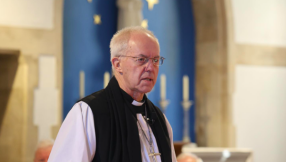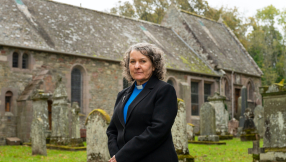The Church of England has said it will give 'serious consideration' to a letter signed by over 1,600 clergy and church wardens in opposition to its latest guidance on transgenderism.
The open letter asks the House of Bishops to 'revise, postpone or withdraw' the guidance on services of welcome for transgender people.
The Church of England has faced backlash over the guidance, which advises members of the clergy to address the transgender person by their chosen name and give the occasion a 'celebratory character'.
Controversially, the guidance also formally commends the incorporation of the existing rite for the Affirmation of Baptismal Faith into the services.
'The possibility of celebrating gender transition appears to be based on the rejection of physical differentiation between male and female (known as 'sexual dimorphism'),' the letter states.
'This dimorphism is not only an almost universal biological reality (with the exception of a very small number who are biologically intersex) but has also been the basis of the Church's understanding of Christian marriage, is seen as an important feature of God's work as creator, and is a symbol of God's covenant relationship with humanity.
'The guidance offers no theological reflection to justify this sort of revised narrative.'
Signatories of the letter include the former Bishop of Rochester, Rt Rev Michael Nazir-Ali, Rt Rev Graham Dow, Assistant Bishop of Chester, Ven Dr Edward Dowler, Archdeacon of Hastings and the Archdeacon of Bath, Ven Dr Adrian Youings.
Rev Ian Paul, a member of the Archbishops' Council, told The Times that the scale of the response was 'unprecedented'.
'This is the voice of the Anglican core,' he said.
The Church of England said in a statement to the newspaper: 'The bishops will give the letter their serious consideration, especially in the context of the preparation of a major new set of teaching and learning resources on identity, relationships, marriage and sexuality, "Living in Love and Faith", which will be published next year.
'Transgender matters will be covered in those resources and the pastoral guidance does not pre-empt the work of the "Living in Love and Faith" process. The guidance is not a restatement or a new statement on matters relating to gender, nor does it change the Church of England's teaching.'
A Church of England minister and signatory of the letter David Baker criticised the statement from the Church of England, saying it appeared to bat the issue into the long grass.
'Furthermore, it did not suggest any of the usual actions which generally signify actual, genuine listening – such as meeting in person with some of those who have signed, engaging in detail with the specific issues raised, or setting out any kind of process of response,' he said.
'But it is listening in deeds we seek, not 'listening' as in words only, via a brief statement to the press.'













